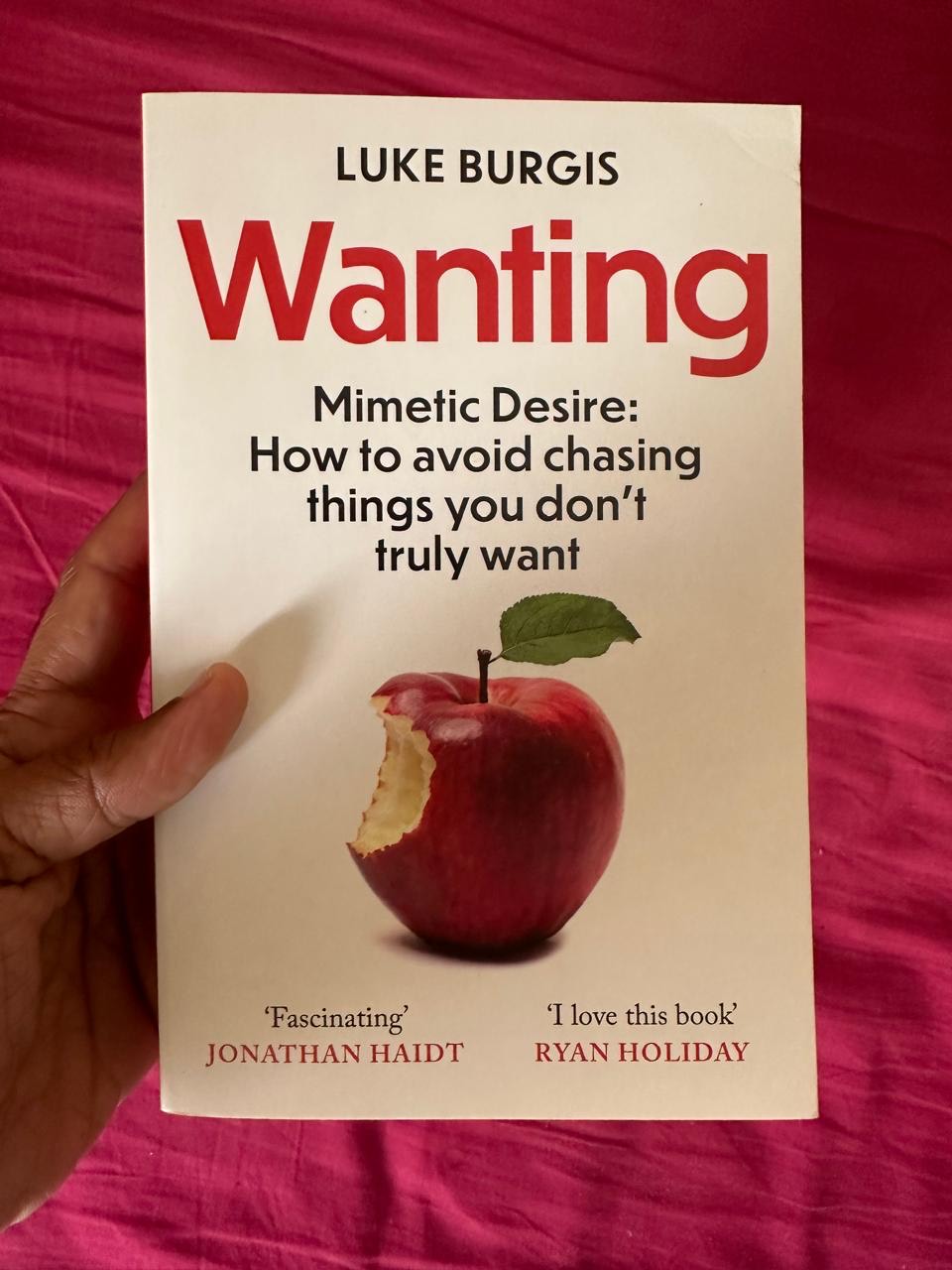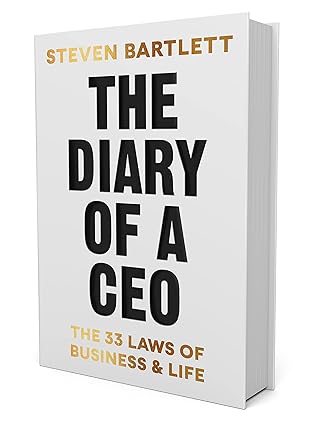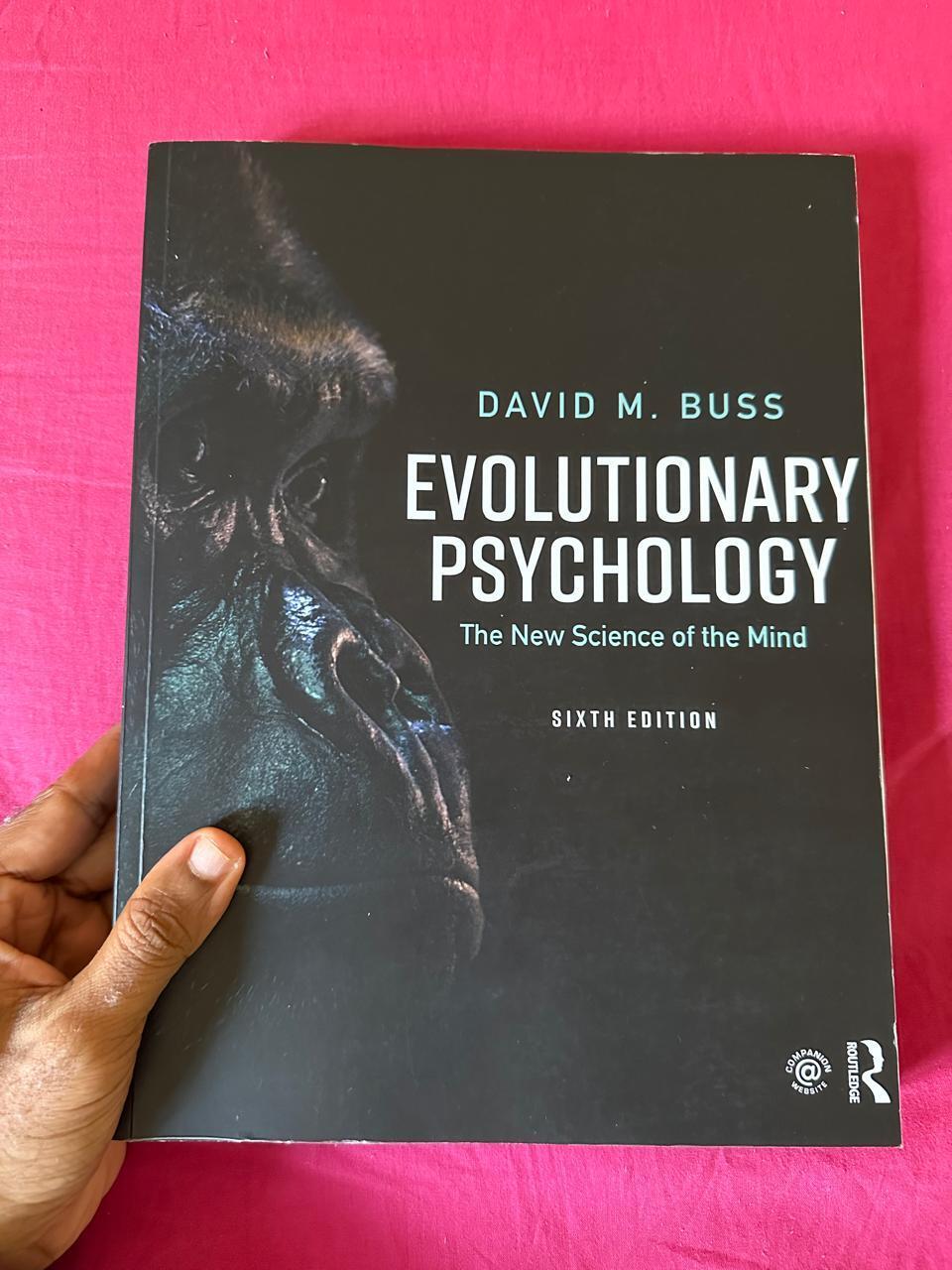
HomeThe Diary of a CEO by Steven BartlettBook SummaryThe Diary of a CEO by Steven Bartlett
The Diary of a CEO by Steven Bartlett
The Diary of a CEO by Steven Bartlett

- Binod Shankar
- Book Summary
My Top 45 points:
1. Fill your five buckets in this order (each flow from the previous ones, the first two can never be taken from you): 1. What you know (your knowledge) 2. What you can do (your skills) 3. Who you know (your network) 4. What you have (your resources) 5. What the world thinks of you (your reputation)”
2. To master something, teach it.
3. When you find yourself disagreeing with someone, avoid the emotional temptation, at all costs, to start your response with ‘I disagree’ or ‘You’re wrong’, and instead introduce your rebuttal with what you have in common, what you agree on, and the parts of their argument that you can understand.
4. You do not get to choose what you believe – to change a belief find positive new evidence. Unchallenged beliefs are the most limiting.
5. You must lean in to bizarre behavior, when you don’t understand or feel challenged, lean in more. Leaning out will leave you behind. Lean in to risk.
6. Never fight a bad habit. Create a new habit by adapting a bad one with better outcomes.
7. ‘Skin in the game’ works because across several global studies it’s been demonstrated that human behavior is more strongly driven by the motivation to avoid losses than to pursue gains, which is what scientists call ‘loss aversion’. Give yourself something to lose.”
8. Always prioritize your first foundation – your health.
10. Useless absurdity will define you more than useful practicalities. You’ll be known for the absurd things you do, it’s for the risk taker and the genius. Normality is dull. Absurdity sells.
11. Avoid “wallpaper” at all costs. Communicate by cutting though the habituation filter. Tell stories in an unconventional way. Make people feel something, indifference is the enemy.
12. You must piss people off. Hate is a signal that you are saying the right things, triggering an emotional response that triggers 20 percent of your audience. Indifference is the least profitable outcome.
13. People have no incentive to think, talk or write about things that maintain the status quo but they have a tremendous incentive to share absurd things that mock it.
14. It’s nearly always cheaper, easier and more effective to invest in perception than reality. This is called a psychological moonshot which is a relatively small investment that drastically improves the perception of something.
15. Making things easier isn’t necessarily the path to a psychological moonshot, sometimes you have to do the opposite e.g. Red Bull delivers on its psychological expectation of enhancing your performance by intentionally making it taste bad. Because it tastes more like medicine than a pleasant frizzy drink, they’ve convinced their customers that it’s packed with powerful, effective chemicals. Friction can create value.
16. The frame matters more than the picture. 90% lean sounds better than 10% fat. Change the frame, you change the message. A smart frame will transform the plain. Apple stores are like art museums.
17. Let them try and they will buy. Showing is better than telling. Through the lens of ownership, the ordinary becomes the extraordinary.
18. Fight for the first five seconds. They are do or die for any story. Drop the warm intro: get to the thumb-stoppingly compelling, the emotionally engaging, annoyingly magnetic point first.
19. You must sweat the small stuff. Find the 1 percent consistent gains, rather than the occasional great gains. The Kaizen philosophy.
20. Because of the Kaizen philosophy, Toyota reportedly implements a staggering 1 million new ideas each year. These suggestions are often tiny like increasing the size of water bottles to better hydrate employees, lowering a shelf to make tools slightly easier to reach or making the font on a safety warning just one point size bigger to reduce accidents.
21. A small miss now, creates a big miss later, so watch yourself.
22. You must become a Plan-A thinker. A backup plan is a distracting companion. Don’t have a plan B.
23. Don’t be an ostrich. Avoiding uncomfortable realities means accepting an uncomfortable future.
24. You must make pressure your privilege. Hard is the price we pay today for an easy tomorrow. Reframe pressure as the price of growth.
25. When under pressure, stress can help you succeed. Our physical response to stress is to produce hormones that result in higher energy, enhanced alertness and a boost in focus. What a wonderful way for our body to prepare us. Don’t fight it, use it.
26. When the stress of the training is unbearable, we can own it, knowing that ultimately it is what we have chosen to do.
27. The power of negative manifestation. Your personal progression is probably trapped behind an uncomfortable conversation. Imagine why something might fail in the future.
28. The truth is humans make really shitty decisions- decisions clouded in emotion, induced by fear and influenced by insecurity. We are not very logical, we re riddled with biases and we are always searching for shortcuts.
29. Labels act as shortcuts. They make us feel understood, they tell us we belong somewhere and they subtly reassure us that we have a purpose in this world. However, these labels also become professional shackles, stifling our creativity and narrowing the scope of our experiences.
30. Your skills are worthless, but your context is valuable. Different markets will value your (same) skills widely differently.
31. A common misconception is that the only avenues for a pay increase are to either vie for a promotion or to seek a similar role within the same industry. However, an effective and potentially more rewarding approach may lie in transplanting one’s skill set to an entirely new context- a different industry- where it can deliver greater value for the employer.
28. Ask who, not how. Hire smart people to tell you what to do. Who is the best person to do this for me? Ego insists you do it yourself; your potential insists you delegate.
29. Create a cult mentality. Can be incredibly useful in the first stages, but cults are not sustainable.
30. Put culture before all other considerations for a team. Every hire you should be looking to raise the bar. Anyone who lowers the bar, get rid of asap.
31. Skin in the game works because humans are more driven by the motivation to avoid losses than to pursue gains.
32. It’s no surprise that people who are most likely to change our minds are the ones we agree with 98% of the time. We feel that they fundamentally understand us, so we are more open to listening to them.
33. Asking someone to explain the detail and logic underpinning their strongly held beliefs is a powerful way to reduce their conviction.
34. Unchallenged limiting beliefs are the greatest barrier between who we are and who we could be.
35. Change is only going to get faster so expect your feelings of cognitive dissonance (the feeling that something doesn’t make sense conflicting with what you already know) to increase.
36. Turning a statement into a question could influence a person’s behavior for up to 6 months. The question effect is even more powerful with questions that can only be answered with either yes or no.
37. Unfortunately, our self-story isn’t just influenced by the first party evidence we have collected about ourselves, its also influenced profoundly by the stereotypes around us.
38. People think they are motivated by seeking pleasure; they are wrong, they are motivated by avoiding discomfort.
39. In a relationship, if you are having the same conversation over and over again you are avoiding the uncomfortable conversation you should be having.
40. Scientists have long said that as humans we struggle to comprehend infinity, but perhaps we are also blind to the concept of finality and the inescapable truth that our journey will one day come to an end.
41. No one leaving a good company kills it, but sometimes one person staying can.
42. To clarify which team members should be hired, fired or promoted I use the ‘three bars’ framework. Ask a simple question in relation to a specific team member; ‘If everyone in the organization had the same cultural values, attitude and level of talent as this employee, would the bar (the average) be raised, maintained or lowered?’
43. It’s quite easy to make small incremental changes and make them stick. And it’s the stickability over time which makes the big difference.
44. To solve problems, encourage and celebrate small wins. This provides continuous forward momentum, which creates an atmosphere of success and a positive sense that a team is moving towards their bigger goals.”
45. Stories are the single most powerful weapon any leader can arm themselves with – they are the currency of humanity. Those who tell captivating, inspiring, emotional stories rule the world.
#careercoach #executivecoaching #corporatecoaching #businesscoaching



